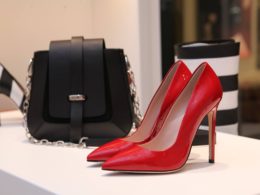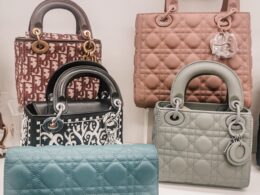Over the last few decades, legislative and social efforts have influenced companies to institute eco-friendly practices. But the push toward environmentalism has been accompanied by a deceptive and dishonest practice known as greenwashing.
Coined in the 1980s by environmentalist Jay Westerveld, the term “greenwashing” refers to when a company or organization falsely portrays itself as environmentally conscious or overstates eco-conscious practices that are largely symbolic. 1[1]Andrew Nakamura, The History of Greenwashing and its Modern Evolution, The Climate Club, September 25, 2023, https://www.theclimateclub.co/sustainabilityblog/the-history-of-greenwashing-and-its-modern-evolution. Westerveld first used the term “greenwashing” to describe a hotel policy urging guests to reuse towels to “save the environment.” In reality, the policy was aimed at reducing the hotel’s laundry costs. 2[2]Id. In essence, Westerveld critiqued the hotel policy for effectuating minimal environmental good – a common theme that is reflected in modern fashion companies.
Recently, companies in the fashion industry have been accused of greenwashing for inaccurately labeling materials or exaggerating environmentally friendly manufacturing practices. This article describes current lawsuits seeking to hold fashion companies liable for false advertising about the eco-friendliness of their products.
Greenwashing in the Fashion Industry
Fashion companies frequently market and advertise their products as being produced in an eco-friendly manner. Despite this, these same companies often drift away from their advertised “values.” For instance, a common greenwashing practice that fashion companies use is mislabeling the material in their products. 3[3]Jose Max Lin, What is Greenwashing in the Fashion Industry, Handbagio, September 2, 2022, https://www.handbagio.com/greenwashing/. Specifically, a fashion company may falsely advertise that it uses sustainable, “low impact” fabrics, such as recycled cotton or organic linen, when in reality, the material only consists of a small percentage of sustainable fabrics and is instead predominantly made of recycled polyester or nylon – both of which are unsustainable but are relatively cheap. 4[4]Saloni Doshi, Guide to Fabric Sustainability, April 6, 2023, EcoEnclose, https://www.ecoenclose.com/resources/guide-to-fabric-sustainability.
Other fashion greenwashing practices are done more subliminally. For instance, another common green-washing example that fashion companies engage in is when they claim that certain materials are “vegan leather.” Although the term itself sounds impressionable to the average consumer since no animal products are being used, these faux leathers are made of polyurethane or polyvinyl chloride – both of which are types of plastic which are not biodegradable, defeating the whole purpose of “vegan leather” being labeled as sustainable. 5[5]Allysion Chiu, ‘Vegan’, ‘Sustainable’: How To Spot Misleading Fashion Claims, January 27, 2023. https://www.washingtonpost.com/climate-solutions/2023/01/25/greenwashing-fashion-clothes-vegan-sustainable/ .
Greenwashing provides cover for fashion companies looking to adopt cheaper production and manufacturing processes. 6[6]Id. As greenwashing has become more common in the fashion industry, consumers have responded with backlash, and private legal actions have been initiated, accusing companies of consumer fraud.
Greenwashing and Consumer Protection Laws
Due to inconsistent regulation, claims of greenwashing can be difficult to assert and prove. Despite this difficulty, greenwashing lawsuits have moved forward in states with robust consumer protection laws, such as New York and California. 7[7]Jacob H. Hupart, Douglas P. Baumstein, Will g. McKitterick, Jared Solomon, Alex Mejia, Greenwashing Class Action Litigation: An Emerging Risk for Companies’ Claims of Sustainability, Mintz, August 2, 2023, https://www.mintz.com/insights-center/viewpoints/2151/2023-08-02-greenwashing-class-action-litigation-emerging-risk. Both states have large consumer bases and environmentally conscious populations, potentially making legal actions for greenwashing in these states more impactful. For example, greenwashing claims have been brought under the New York’s General Business Law §§349-350, which prohibits deceptive acts or practices in the conduct of any business or any service in New York. 8[8]NYGBS §§349-350. https://codes.findlaw.com/ny/general-business-law/gbs-sect-349/. Claims under this statute do not require actual proof of a consumer’s justifiable reliance on the challenged misrepresentation or deceptive practice, making it easier for plaintiffs to prove a greenwashing claim. 9[9]Id. California has similar statutes: the California Consumer Legal Remedies Act, the Unfair Competition Act, and the False Advertising Law. Under these statutes, greenwashing is a form of unfair competition, defined as “any unlawful, unfair, or fraudulent business act or practice.” 10[10]Cal. UCL Bus. & Prof. §17200. https://law.justia.com/codes/california/2022/code-bpc/division-7/part-2/chapter-5/section-17200; Cal. UCL Bus. & Prof. §17500. https://law.justia.com/codes/california/2010/bpc/17500-17509; Cal. Civ. Code § 1770. https://codes.findlaw.com/ca/civil-code/civ-sect-1770/.
A typical case under these laws will allege false advertising. Since 2021, seventeen greenwashing class-action lawsuits claiming false advertising have been filed mostly in New York, but also in California. 11[11]Jacob H. Hupart, Douglas P. Baumstein, Will g. McKitterick, Jared Solomon, Alex Mejia, Greenwashing Class Action Litigation: An Emerging Risk for Companies’ Claims of Sustainability, Mintz, August 2, 2023, https://www.mintz.com/insights-center/viewpoints/2151/2023-08-02-greenwashing-class-action-litigation-emerging-risk.
One such case was brought in the Southern District of New York (SDNY) against Canada Goose, a winter clothing brand that has established itself as a global luxury brand [12]Lee v. Canada Goose US, Inc., 20 Civ. 9809 (S.D.N.Y. June. 29, 2021). The plaintiff, an individual consumer, alleged that the tags on Canada Goose coats describe the coyote fur used to produce the coat as being sourced ethically and sustainably. However, the tags mention that the fur is obtained using coyote trappers. 12[13]Id. Coyote trappers use inhumane practices of leghold traps and snares to capture the coyotes in order to obtain the fur. 13[14]Id. at 2-3. The plaintiffs alleged that the company’s practices were not ethical and that the labels were misleading to consumers. 14[15]Id. Thus, plaintiffs argued that Canada Goose was liable under New York’s General Business Law §349. 15[16]Id. The claim survived the defendant’s motion to dismiss, as the court found that the representations of “sustainable fur sourcing” on the coat labels, while simultaneously using snare trappers to obtain that fur, created material misrepresentation and could mislead a reasonable consumer. 16[17]Id. at 19.
In contrast, a different SDNY judge dismissed a greenwashing class-action alleging misrepresentation by the shoe company Allbirds, Inc (“Allbirds”). 17[18]See Dwyer v. Allbirds, Inc., 598 F. Supp. 3d 137, 147 (S.D.N.Y. Apr. 18, 2022). Here, the plaintiffs argued that the company’s claims that “Our Sheep Live the Good Life” was materially misleading under New York’s General Business Law §§349-350. 18[19]Id. The plaintiffs alleged that sheep farms were unethical in their treatment of the animals. They stated that the sheep did not have safe or proper care, and that the sheep were not living “the good life” as asserted in Allbirds’ advertisement. 19[20]Id. at 147. The court dismissed the claim, explaining that Allbirds’ statement was merely puffery, and not misrepresentation. The court found that the statement was “subjective and vague” and did not actually make a factual claim about the company’s production methods – in contrast to Canada Goose’s statements about their fur sourcing. 20[21]Id. at 154. The court held that “puffery” involved generalized and exaggerated statements that a reasonable consumer would not interpret as being factual, whereas misrepresentation involved statements that induce a reasonable consumer to interpret a factual claim upon it. 21[22]Id. at 153.
In yet another SDNY case, a fashion marketing student filed a claim against popular clothing brand H&M Hennes & Mauritz AB (“H&M”). That claim alleged that H&M marketed and labeled their “conscious collection” as sustainably made, while in actuality, the materials did not comply with the Higgs Materials Sustainability Index (“Higgs MSI”) data. 22[23]Brittany, Sierra, H&M is Being Sued For “Misleading” Sustainability Marketing. What Does This Mean for the Future of Greenwashing?, Sustainable Fashion Forum, August 17, 2022, https://www.thesustainablefashionforum.com/pages/hm-is-being-sued-for-misleading-sustainability-marketing-what-does-this-mean-for-the-future-of-greenwashing. Higgs MSI is a metrics tool used by mostly the apparel industry to measure and score their environmental impacts of different materials they use. 23[24]Lena Milton, What is the Higg Index and How Does It Help Ensure Ethical, Sustainable Fashion?, May 15, 2022, https://www.unsustainablemagazine.com/what-is-the-higg-index/. Companies that use the Higgs MSI can assess the sustainability of their product’s life cycle and see how their operations truly reflect environmental impacts. 24[25]Id. Although the case remains in the early stages of litigation, H&M’s motion to dismiss was denied in part. Currently, the case is to be tried by a jury [26]Commodore v. H&M Hennes & Mauritz LP, 7:22CV06247. https://www.courtlistener.com/docket/63893587/commodore-v-hm-hennes-mauritz-lp/., raising the risk that a popular apparel company will be held to account for the truthfulness of sustainability statements.
Conclusion
The spate of litigation demonstrates that environmentally conscious consumers will not hesitate to hold companies accountable for greenwashing their unethical practices, especially in the fashion industry. Beyond litigation consequences, companies who misrepresent their eco-friendly practices can face bad publicity, loss of consumer trust, and reputational damage. With increased consumer scrutiny, some even predict that governments and regulatory bodies may introduce stricter standards for companies, whether that be regulations regarding word usage of specific terms like “eco-friendly” or “sustainable” or strict requirements for transparent reporting of a company’s environmental practice. California, for instance, has just passed the first of its kind statute requiring companies to disclose information pertaining to voluntary carbon offset transactions. 25[27]David M. McCullough, California Combats Greenwashing with New Voluntary Carbon Offset and Carbon-Neutral and Low-Carbon Product Disclosure Law, December 19, 2023. https://www.pillsburylaw.com/en/news-and-insights/california-greenwashing-carbon-law.html. If this trend continues, fashion companies may soon be forced to align their environmental values with their business decisions and support effective sustainability practices.
Written by: Georgia Paliogiannis
Georgia is a 2024 J.D. Candidate at Brooklyn Law School
1 Andrew Nakamura, The History of Greenwashing and its Modern Evolution, The Climate Club, September 25, 2023, https://www.theclimateclub.co/sustainabilityblog/the-history-of-greenwashing-and-its-modern-evolution.
2 Id.
3 Jose Max Lin, What is Greenwashing in the Fashion Industry, Handbagio, September 2, 2022, https://www.handbagio.com/greenwashing/.
4 Saloni Doshi, Guide to Fabric Sustainability, April 6, 2023, EcoEnclose, https://www.ecoenclose.com/resources/guide-to-fabric-sustainability.
5 Allysion Chiu, ‘Vegan’, ‘Sustainable’: How To Spot Misleading Fashion Claims, January 27, 2023. https://www.washingtonpost.com/climate-solutions/2023/01/25/greenwashing-fashion-clothes-vegan-sustainable/.
6 Id.
7 Jacob H. Hupart, Douglas P. Baumstein, Will g. McKitterick, Jared Solomon, Alex Mejia, Greenwashing Class Action Litigation: An Emerging Risk for Companies’ Claims of Sustainability, Mintz,August 2, 2023, https://www.mintz.com/insights-center/viewpoints/2151/2023-08-02-greenwashing-class-action-litigation-emerging-risk.
8NYGBS §§349-350. https://codes.findlaw.com/ny/general-business-law/gbs-sect-349/.
9 Id.
10 Cal. UCL Bus. & Prof. §17200. https://law.justia.com/codes/california/2022/code-bpc/division-7/part-2/chapter-5/section-17200; Cal. UCL Bus. & Prof. §17500. https://law.justia.com/codes/california/2010/bpc/17500-17509; Cal. Civ. Code § 1770. https://codes.findlaw.com/ca/civil-code/civ-sect-1770/
11 Jacob H. Hupart, Douglas P. Baumstein, Will g. McKitterick, Jared Solomon, Alex Mejia, Greenwashing Class Action Litigation: An Emerging Risk for Companies’ Claims of Sustainability, Mintz,August 2, 2023, https://www.mintz.com/insights-center/viewpoints/2151/2023-08-02-greenwashing-class-action-litigation-emerging-risk.
12 Lee v. Canada Goose US, Inc., 20 Civ. 9809 (S.D.N.Y. June. 29, 2021).
13 Lee v. Canada Goose, 2021 WL 2665955, at 1 (S.D.N.Y. June 29, 2021).
14 Id. at 2-3
15 Id.
16 Id.
17 Id. at 19
18 See Dwyer v. Allbirds, Inc., 598 F. Supp. 3d 137, 147 (S.D.N.Y. Apr. 18, 2022).
19 Id.
20 Id. at 147
21 Id. at 154.
22 Id. at 153.
23 Brittany, Sierra, H&M is Being Sued For “Misleading” Sustainability Marketing. What Does This Mean for the Future of Greenwashing?, Sustainable Fashion Forum, August 17, 2022, https://www.thesustainablefashionforum.com/pages/hm-is-being-sued-for-misleading-sustainability-marketing-what-does-this-mean-for-the-future-of-greenwashing.
24 Lena Milton, What is the Higg Index and How Does It Help Ensure Ethical, Sustainable Fashion?, May 15, 2022, https://www.unsustainablemagazine.com/what-is-the-higg-index/.
25 Id.
26 Commodore v. H&M Hennes & Mauritz LP, 7:22CV06247. https://www.courtlistener.com/docket/63893587/commodore-v-hm-hennes-mauritz-lp/.. at 154.
27 David M. McCullough, California Combats Greenwashing with New Voluntary Carbon Offset and Carbon-Neutral and Low-Carbon Product Disclosure Law, December 19, 2023. https://www.pillsburylaw.com/en/news-and-insights/california-greenwashing-carbon-law.html



